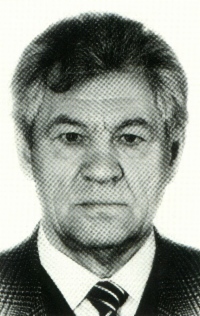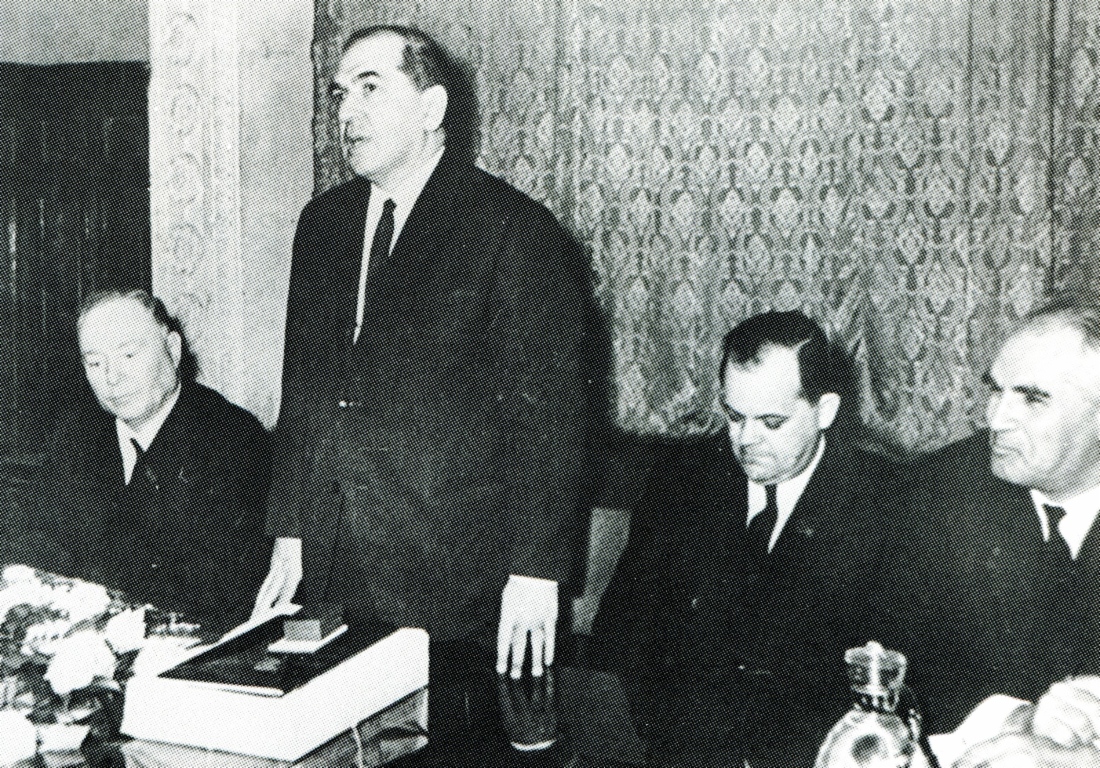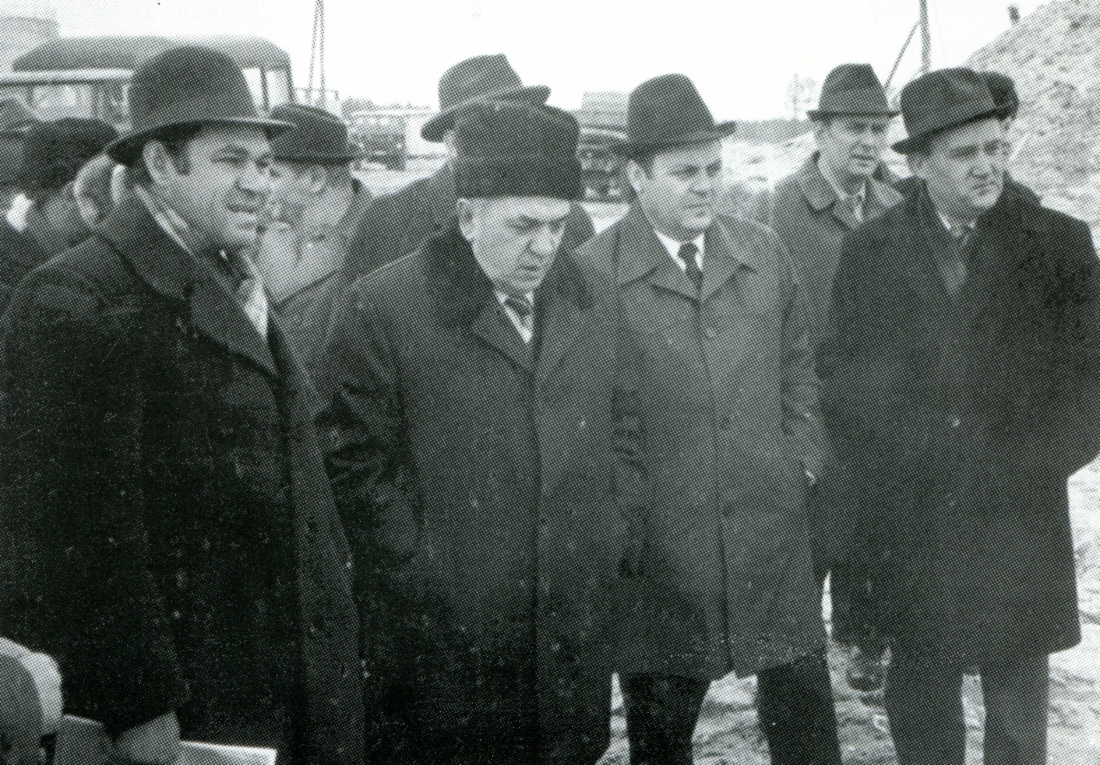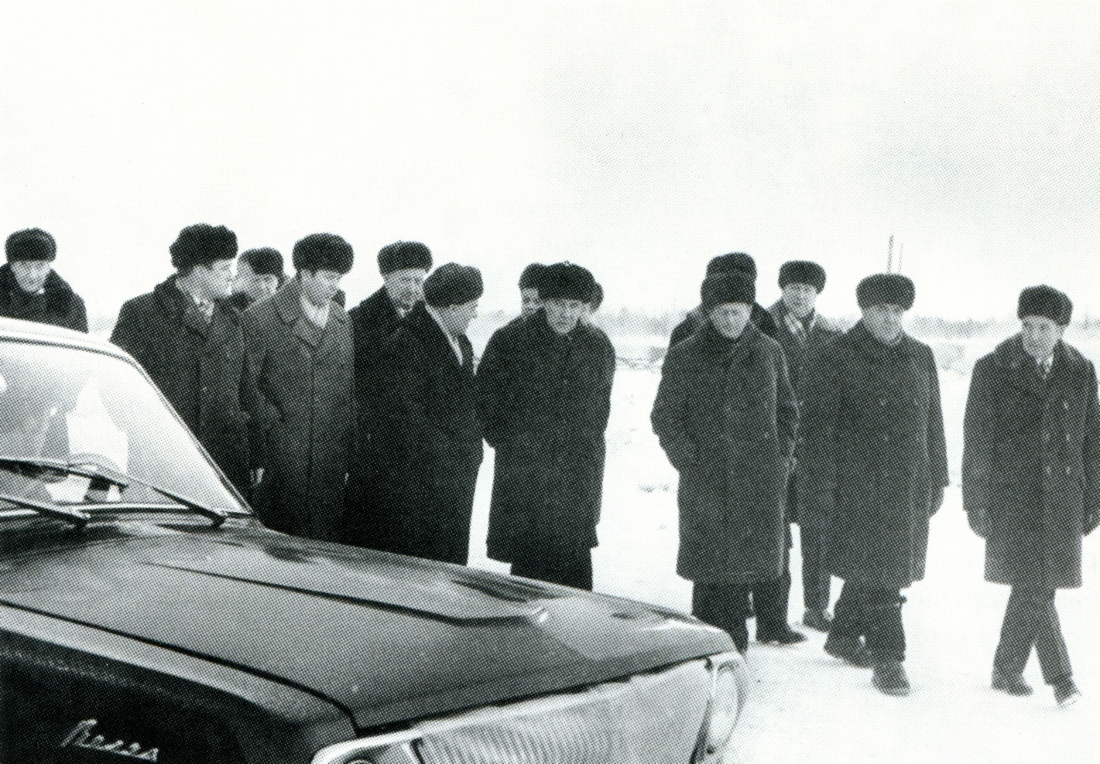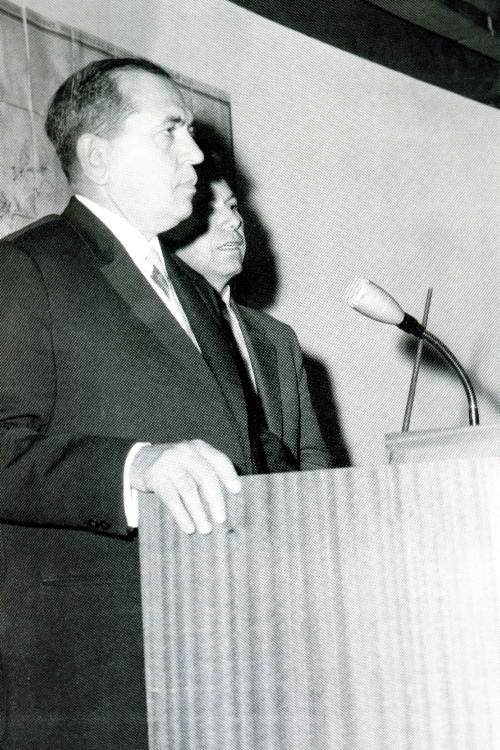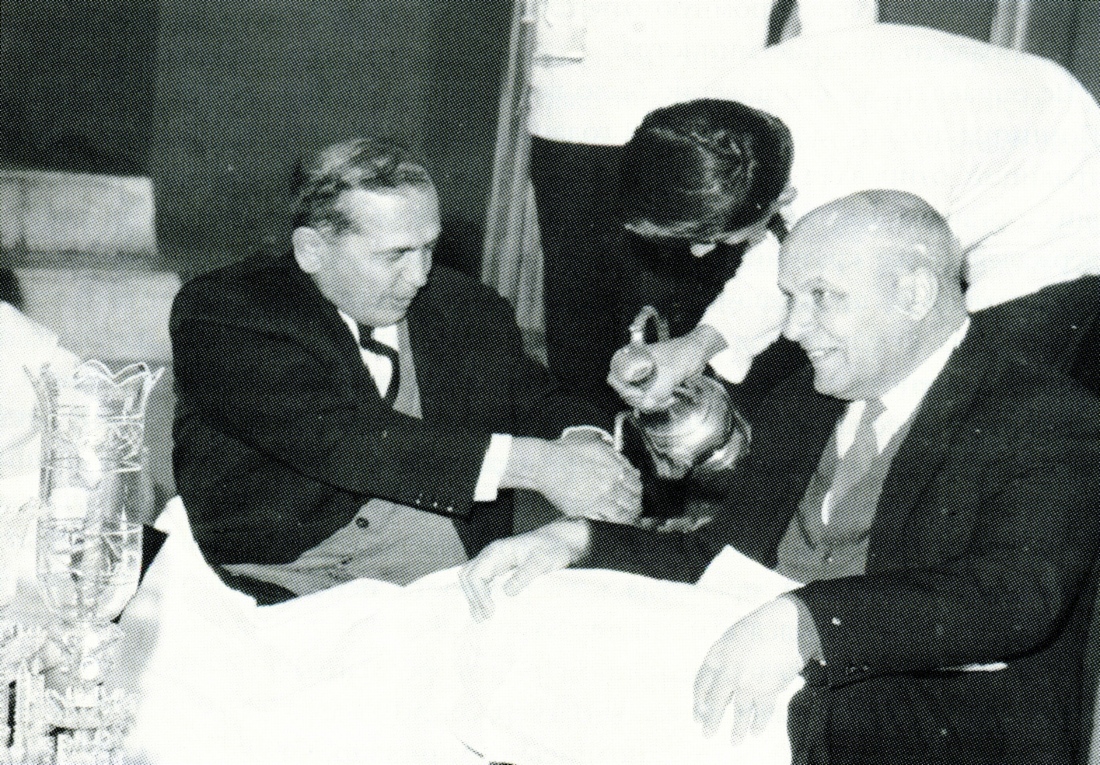Vladimir Chirskov
From 1978 – Deputy Minister of Construction of Oil and Gas Industries of the USSR.
“Orudzhev did not like unnecessary debates and was always ready to strike a reasonable compromise…”
Break for finals
Even during periods of intense work when every minute seemed to count, Sabit Orudzhev could make a break to relieve the tension and let people catch their breath. A situation that took place at one of the meetings in the town of Igrim stuck in my memory. At the time, I was the Deputy Minister at the USSR Ministry of Construction of Oil and Gas Industries and often accompanied Mr. Orudzhev on his business trips to Siberia. Over fifty local top executives were present at the meeting, and quite an important discussion was in progress. Meanwhile, the Soviet team was playing in the finals of the Ice Hockey World Championship. No television broadcasting was available in Igrim yet, but several people were listening to a radio broadcast of the match in an adjacent room, and from time to time they sent paper notes with the match results to the meeting hall. Knowing that many of the meeting participants were fans of our hockey team, I decided to send a paper note to Mr. Orudzhev. After reading it, he stood up from his place.
“Comrades, there is something I must tell you. We are solving the issues of gas supply here. This is a state matter of utter importance. But there is another spiritual issue now, which is equally important. At this moment, our athletes are playing an ice hockey match, and it’s ending in ten minutes. I suggest a break in our important meeting so that we can listen to our team win this important match. Bring the radio here and put it on the table, let everyone listen to it.”
After the broadcast of the match ended, the minister congratulated everyone on the victory of the Soviet team and continued the meeting. The tension was now gone, and a normal business conversation started.
Clash of ministries
Orudzhev was good at protecting the interests of the gas sector without overemphasizing its importance to the detriment of other sectors. The biggest interministerial fights took place during the creation of the plan for the next year. The USSR State Planning Committee collected proposals from all ministries. And it is no secret that each ministry pursued its own economic policy, which was not always in accord with the policies of other ministries. That is why they sometimes put forward projects that lacked rationality but had a large margin of safety.
To definitively steamroll or reject those projects, all the management of ministries gathered together at the final stage of planning. The debates resembled a line fight. It were mainly deputy ministers who argued against each other, but the ministers always had the last word in the argument. Sabit Orudzhev understood that it was counterproductive to pursue narrow ministerial interests. He did not like unnecessary debates and was always ready to strike a reasonable compromise.
At the same time, he readily helped our ministry solve many economic issues when he could. The Ministry of Construction of Oil and Gas Industries had fewer funds than the gas industry specialists, so we asked the latter for help many times. This was particularly relevant with regard to the construction of residential buildings and other social and cultural facilities at fields and near pipelines. Sabit Orudzhev understood that all those facilities were built for the people who worked there, and did not spare the funds of his ministry to that end. He also helped the Ministry of Heavy Machine Building, the Ministry of Electrotechnical Industry, and other ministries which were in one way or another involved in the programs of Gazprom. He saw that the solution of each particular issue contributed to the implementation of a large-scale state program related to the development of new regions and the achievement of higher gas production, storage, processing, and transportation volumes. For the sake of implementing the program, Mr. Orudzhev agreed to bear additional expenses even when they caused a delay in solving some individual issues of his own ministry. Not many leaders were ready to do that.
One title for two
Sabit Orudzhev had a deep affection for his family, as well as for the people he liked because of their personal qualities. He did not conceal his affections: the photos of his wife and daughters were always on display in his office, along with the photos of Alexey Kortunov, Valentin Shashin, Boris Shcherbina, and others.
When Mr. Orudzhev was awarded the Hero of Socialist Labor title, he phoned his wife Fatma and exclaimed: “Fatma, you and I have been awarded the Hero of Socialist Labor title!” It was clear that, although he performed large-scale, independent, and important work every day, Sabit Orudzhev did not set himself apart from his wife, and that was why he hastened to share his joy with her.
“It was the beginning of Novy Urengoy and the Urengoy Gas Production Association”
Landing on site
In September 1973, I went on a business trip with Mr. Orudzhev for the first time. We were flying on a helicopter, accompanied also by Gennady Bogomyakov, First Secretary of the Tyumen Region Committee of the Communist Party, Evgeny Altunin, Head of the Tyumen Central Administration for Gas Industry, and others.
On September 25, our helicopter landed at the bend of the Evoyakha River not far from the camp of the Moscow – Igarka telephone line inspector. Although it was autumn, there was an ankle-deep layer of snow on the ground. We got the map out and started choosing the place for a new city.
Three main components
Sabit Orudzhev was the first to understand the significance of that moment. He beckoned his assistant Nikolai Bely to come close and told him:
“Look, Nikolai, take a piece of that reindeer lichen and place it in my office. It will remind me what used to be in the place of the city we will undoubtedly build. But we must celebrate this moment some other way. Bring me a rocket flare.”
A rocket flare was brought from the helicopter. Mr. Orudzhev fired it off high in the air several times, and let Gennady Bogomyakov do the same.
“Something is missing. We probably must celebrate this occasion with a drink,” Mr. Orudzhev decided. “Bring the brandy.”
Brandy was brought, and a little bit was poured for everyone. But we did not drink it right away.
“We are to commence the development of a new large field and to found a city, and it is no good starting a task of this scale without a woman,” Mr. Orudzhev continued. “Ask the stewardess to come here.”
Someone went to get the stewardess, and it turned out that the only footwear she had with her were pumps. So she had to be carried. Then we cleared the ground of snow for her, put her on her feet, and brought her a glass.
“Now, everything is ready. So let us drink to the birth of a new city in our country!” Sabit Orudzhev said solemnly. It was the beginning of Novy Urengoy and the Urengoy Gas Production Association, which was later named after Sabit Orudzhev.

